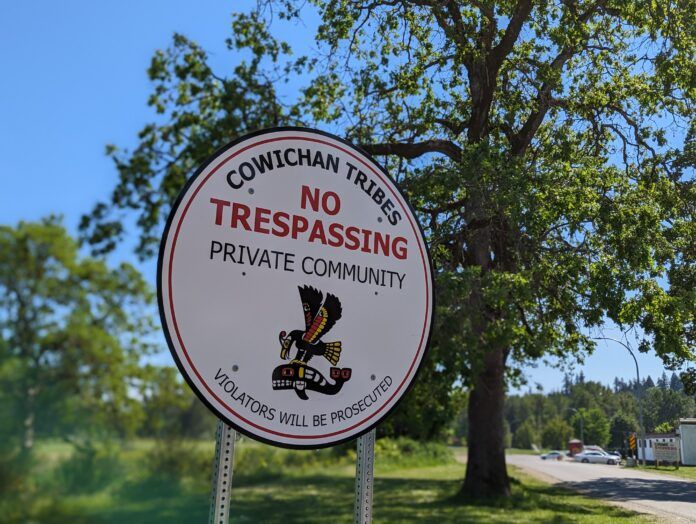Voting is underway in Cowichan Tribes’ process to regain jurisdiction over their child and family services.
In a press release, Cowichan Tribes says Canada’s child welfare system has long discriminated against their children and youth, but this month, their citizens are voting on a Law that would reclaim full authority over those services.
They say the new law embeds nine cultural principles that were identified to guide child and family services. Those are as follows:
- Shtun’ni’iw’s [where you originate from]
- ‘uqwitul [ensuring our familial relationships are strong and respectful]
- Mukw’ tu shhw’a’luqw’a’ ‘o’ tth’ele’s tu shhwuli [Family is the heart of life]
- Tl’i’ tul tst [love]
- Si’emstuhw [respect]
- Ts’i’ts’uwatul’i [helping one another]
- Thu’it stuhw tu shqwalawun [trust/focused in your thoughts and mind]
- Hwi-ulasmutul’l [looking after one another]
- Tl’I’ to’ mukw’ mustimuhw [each person is important]
Their guide on the law covers six aspects of the code, including on how things will be grounded in Snuw’uy’ulh
(Teachings), focused on prevention, have a ‘holistic approach to preserve family unity,’ and be governed by their nation.
This is the second of such votes called by the Band in recent months to gain autonomy over their legal system. It follows their custom election code vote, which was ratified in September.
Cowichan Tribes’ Director of Governance, Stephanie Atleo says these decisions have been made in uncharted territory.
“There is no manual for how to return to our authority over our people and lands,” says Atleo. “We pursue this work to break the cycles of trauma so many of us have experienced under the Indian Act and colonial governments. We are guided by our culture and our Elders to ensure a better future for our people, with thriving families and culture.”
Chief Lydia Hwitsum says they are at a defining moment in their history.
“We are at a defining moment in our history, with the opportunity at our fingertips to chart a happy, healthy, and culturally-rich future for our smun’eem, our children,” says Hwitsum. “Voting yes to ratify our child law means keeping our families together and caring for our children in a way that reflects our snuw’uy’ulh (our teachings) and our ways of being, by using a lens of compassion and tl’l’tul tst (love).”
Tribes’ members can vote online starting today, or in person on November 24th at the Si’em Lelum gymnasium. If approved in the election, the new law would be implemented over a two-year period.
They’re hosting three different information sessions to learn more about the issue before members submit their votes. They will be held in the Si’em Lelum Dining Hall, between 5-7 pm on November 10, 16, and 23.






